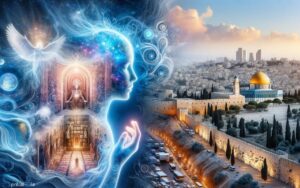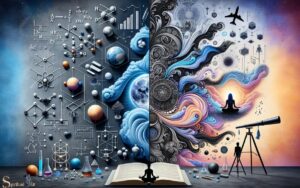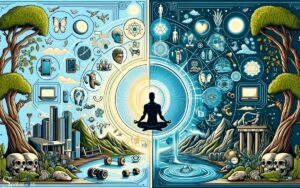Temporal Power Vs Spiritual Power: Governance!
Temporal power refers to the political or secular authority exerted by governments and leaders, whereas spiritual power denotes the influence held by religious institutions and figures.
The dynamic relationship between these two forms of power has significantly impacted historical events, governance, and moral standards within societies.
Temporal and spiritual power have often been in contention, with each seeking to exert control over societies and individuals. For example, during the Middle Ages in Europe, the Pope (as a spiritual leader) and the King (as a temporal leader) frequently competed for supremacy.
Temporal Power:
- Exercised by political leaders
- Enforces laws and governance
- Influences economic and military matters
Spiritual Power:
- Held by religious leaders
- Guides moral and ethical behavior
- Influences cultural and social norms
The interplay between temporal and spiritual powers continues to be a critical factor in shaping modern society, influencing everything from legislation to individual moral choices.
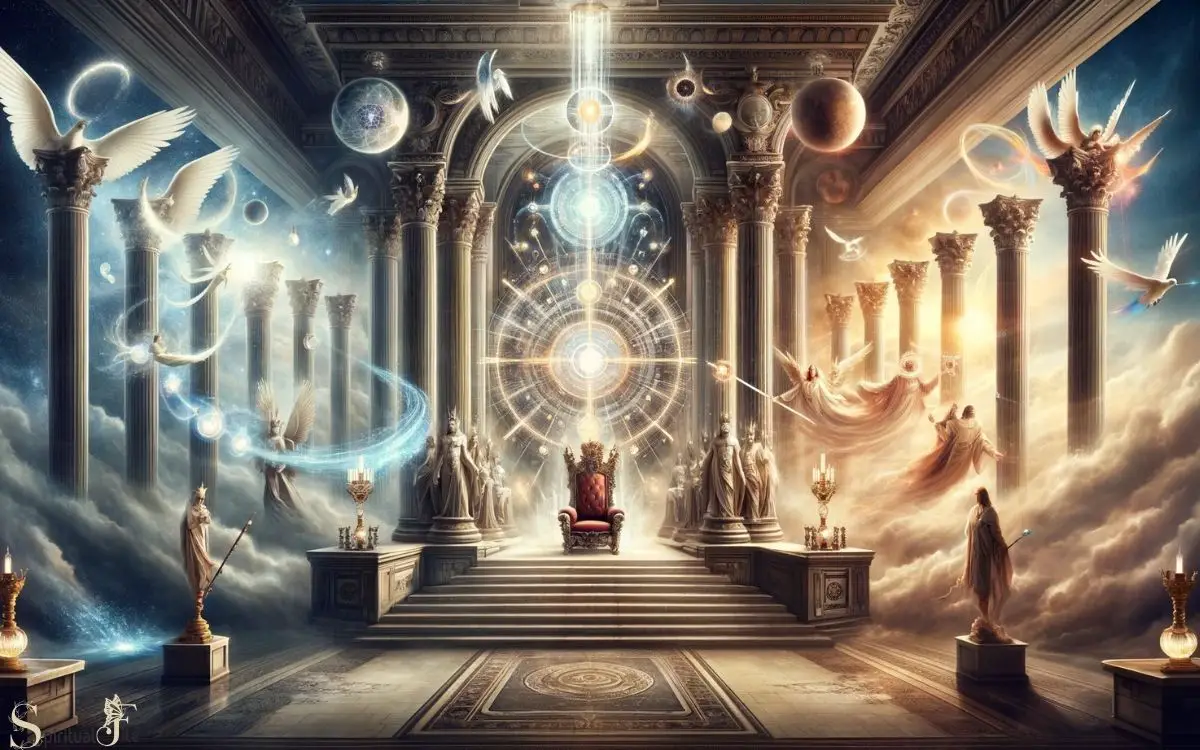
Key Takeaway
9 Aspects: Temporal Power Vs Spiritual Power
| Aspect | Temporal Power | Spiritual Power |
|---|---|---|
| Nature | Political, worldly | Religious, transcendent |
| Authority Source | Government, leadership | Faith, divine |
| Goals | Control, influence | Moral, spiritual growth |
| Influence | Material, societal | Inner, personal |
| Application | Laws, policies, force | Beliefs, prayers, love |
| Accountability | Legal, public scrutiny | Moral, divine judgment |
| Time Horizon | Short-term, immediate | Long-term, eternal |
| Followers | Citizens, subjects | Religious followers |
| Examples | Political leaders, rulers | Religious leaders, saints |
Historical Perspectives
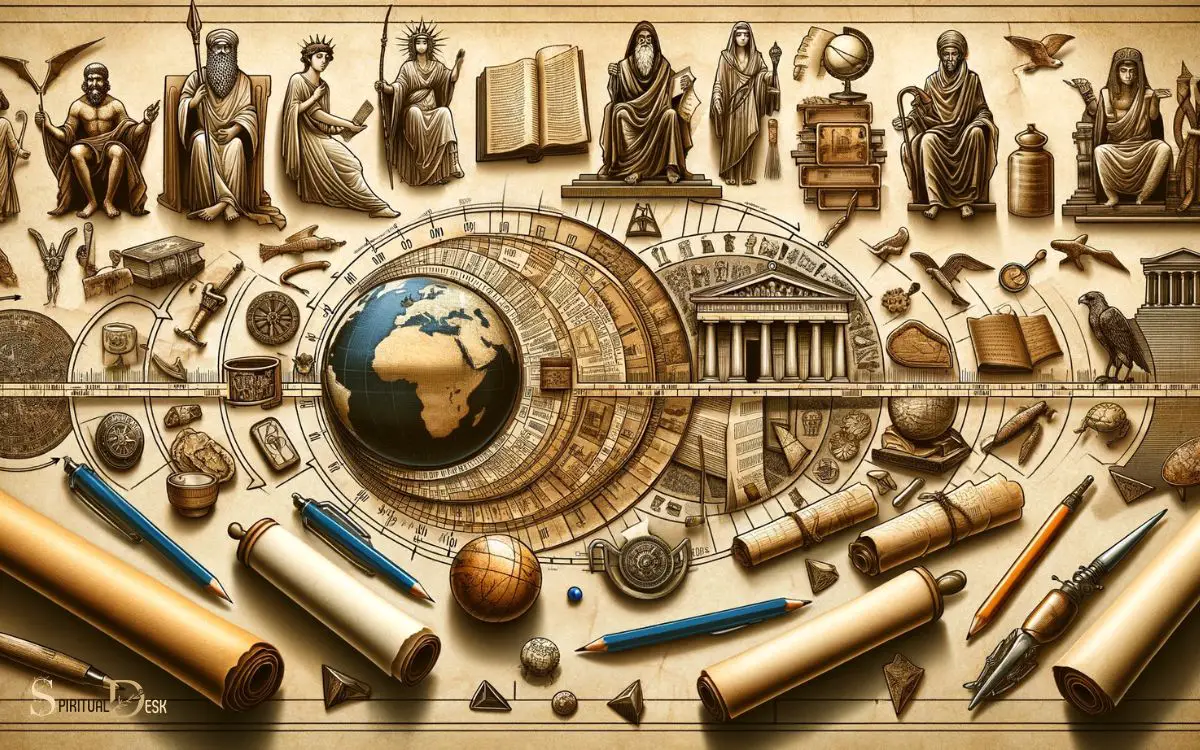
Throughout history, the struggle for dominance between temporal and spiritual powers has shaped the course of nations and societies worldwide.
The tension between these two forces has been a defining feature of human civilization, influencing governance, social structures, and cultural norms.
From the reign of monarchs supported by religious authorities to the separation of church and state in modern democracies, the interplay between temporal and spiritual powers has been a constant theme.
This dynamic has led to landmark events such as the Investiture Controversy in medieval Europe and the clash between political leaders and religious institutions in various historical periods.
Understanding the historical context of this power struggle is crucial in comprehending the complexities of leadership dynamics and the role of both temporal and spiritual authorities in shaping societies.
The Role of Leadership
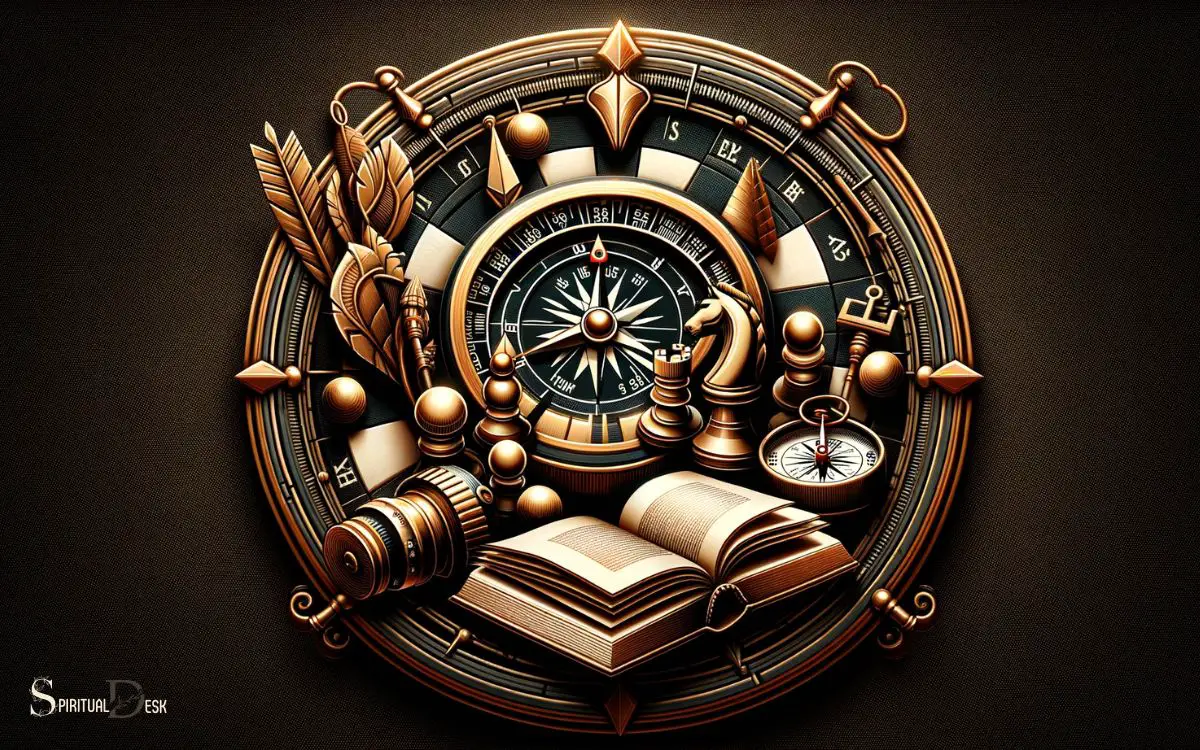
It is essential to examine the dynamics of authority and influence within the context of leadership, particularly in the realm of temporal and spiritual power.
Furthermore, the ethical responsibilities that come with decision-making in a leadership role are crucial to consider, as they impact the overall integrity and effectiveness of leadership.
These points will serve as the foundation for our discussion on the role of leadership in the context of temporal and spiritual power.
Authority and Influence Dynamics
Navigating the complex interplay of authority and influence dynamics in leadership requires a nuanced understanding of both temporal and spiritual power.
Authority in leadership stems from the formal position held within an organization, while influence is derived from personal qualities, expertise, and relationships.
Effective leadership combines both elements, utilizing authority to establish direction and make decisions, and influence to motivate and guide others towards a common goal.
The dynamics of authority and influence are constantly in flux, requiring leaders to adapt their approach to different situations and individuals.
Leaders must also recognize the impact of spiritual power, such as ethical values, vision, and inspiration, in shaping the culture and direction of an organization.
Understanding and balancing these dynamics is crucial for effective leadership in today’s complex and interconnected world.
Ethical Decision-Making Responsibilities
The interplay of authority and influence dynamics in leadership, while crucial for effective leadership, also extends to ethical decision-making responsibilities, which are integral to the role of leadership.
When it comes to ethical decision-making responsibilities, leaders should consider the following:
- Values and Principles: Leaders must base their decisions on a strong foundation of ethical values and principles, ensuring that their actions align with the organization’s moral compass.
- Transparency and Accountability: It is essential for leaders to maintain transparency in their decision-making processes and be accountable for the ethical implications of their choices.
- Ethical Frameworks and Guidance: Utilizing ethical frameworks and seeking guidance from ethical experts can assist leaders in navigating complex ethical dilemmas, ensuring that decisions are made with integrity and fairness.
Influence on Societal Norms
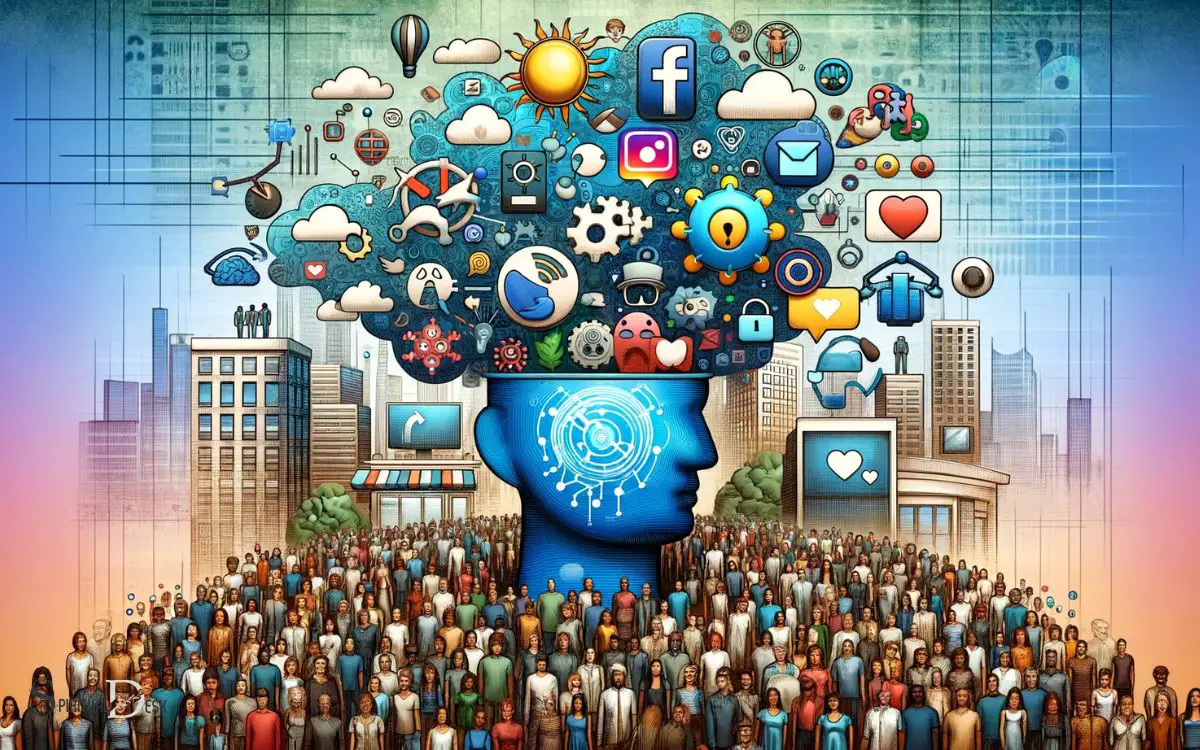
The influence of temporal and spiritual powers on societal norms is a complex and multifaceted issue.
Both law and religion have significant impacts on shaping moral guidance in governance, often intersecting in the formation of cultural values and authority structures within societies.
Understanding the interplay between these influences is crucial for comprehending the intricate dynamics that shape societal norms and behaviors.
Law and Religion Impact
In shaping societal norms, the influence of law and religion is significant as it impacts the moral and ethical framework of a community.
This influence manifests in several ways:
- Legal Codes: Laws often reflect the moral values and ethical principles rooted in religious teachings, shaping societal behavior and guiding interpersonal interactions.
- Moral Guidance: Religion provides moral guidance, influencing individuals’ choices and actions, which, in turn, contribute to the collective ethical standards of a society.
- Social Cohesion: Both law and religion play a crucial role in promoting social cohesion by establishing shared norms and values that foster a sense of community and belonging.
The interplay of law and religion in shaping societal norms underscores the importance of understanding their combined impact on the moral and ethical fabric of a community.
Moral Guidance in Governance
Moral guidance significantly influences governance, shaping societal norms and values. It plays a pivotal role in determining the ethical framework within which a society operates. The table below illustrates the impact of moral guidance on governance and societal norms.
| Moral Guidance in Governance | Influence on Societal Norms |
|---|---|
| Upholding Justice | Fosters Fairness |
| Promoting Integrity | Builds Trust |
| Emphasizing Compassion | Cultivates Empathy |
| Encouraging Honesty | Establishes Transparency |
| Prioritizing Human Rights | Ensures Equality |
These principles provide a foundation for a just and equitable society. When integrated into governance, they contribute to the development of societal norms that reflect compassion, integrity, and fairness.
Therefore, moral guidance is essential in shaping a cohesive and ethical community.
Cultural Values and Authority
Cultural values and authority significantly shape societal norms and influence the ethical fabric of a community. This influence is profound and pervasive, impacting various aspects of daily life.
Three key ways in which cultural values and authority influence societal norms include:
- Social Behavior: Cultural values and authority greatly influence how individuals interact within a society. This includes expected manners, communication styles, and acceptable social conduct.
- Gender Roles: Cultural values often dictate the roles and expectations of individuals based on their gender. These expectations can impact everything from career choices to family dynamics.
- Ethical Standards: The ethical principles upheld by a community are often deeply rooted in cultural values and authority. These standards influence how decisions are made, conflicts are resolved, and societal justice is administered.
Understanding the interplay between cultural values, authority, and societal norms is crucial for fostering harmony and progress within a community.
Impact on Global Conflict
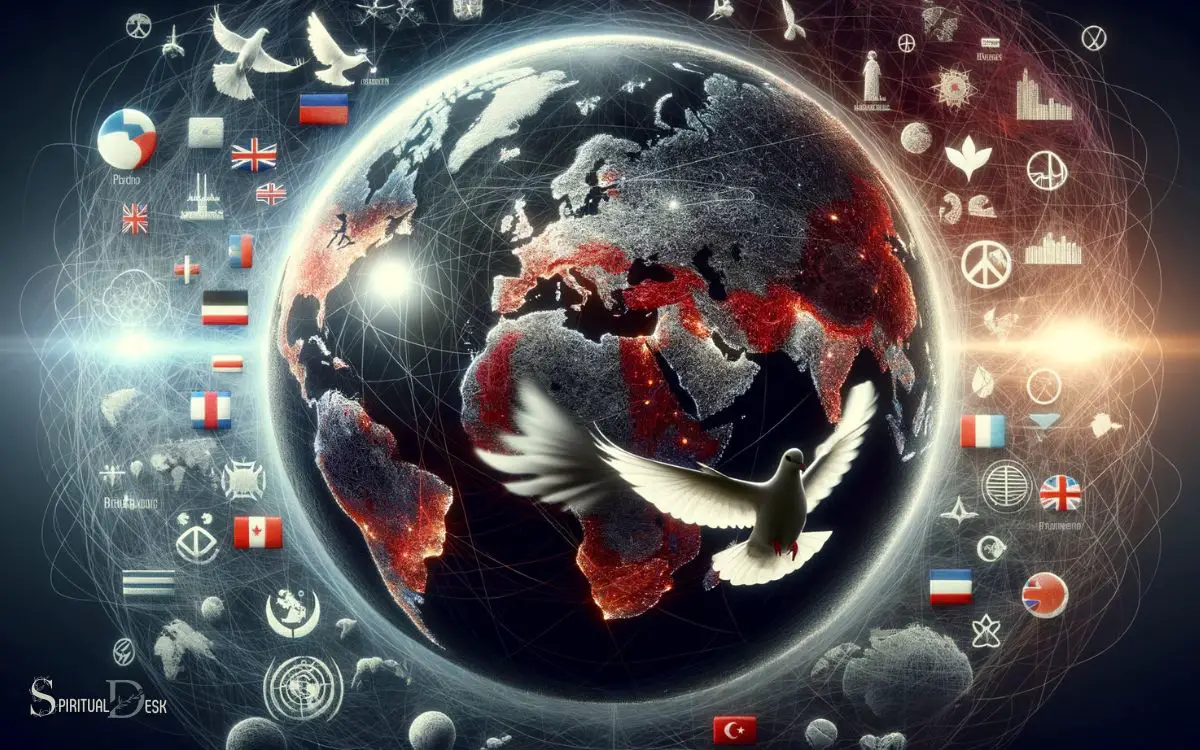
The complex interplay between temporal power and spiritual power significantly influences global conflict dynamics.
Temporal power, often associated with political and military might, can directly impact the geopolitical landscape, leading to conflicts driven by territorial disputes, resource competition, and strategic interests.
On the other hand, spiritual power, derived from religious or moral authority, can shape global conflicts by influencing the ideologies and motivations of both state and non-state actors.
The intertwining of these powers can exacerbate existing conflicts or serve as a catalyst for new ones, as seen in the tensions between different religious groups or the clash of political ideologies.
Understanding how these powers intersect and influence global conflict is crucial for policymakers and analysts seeking to mitigate and resolve such conflicts effectively.
Moral and Ethical Dilemmas
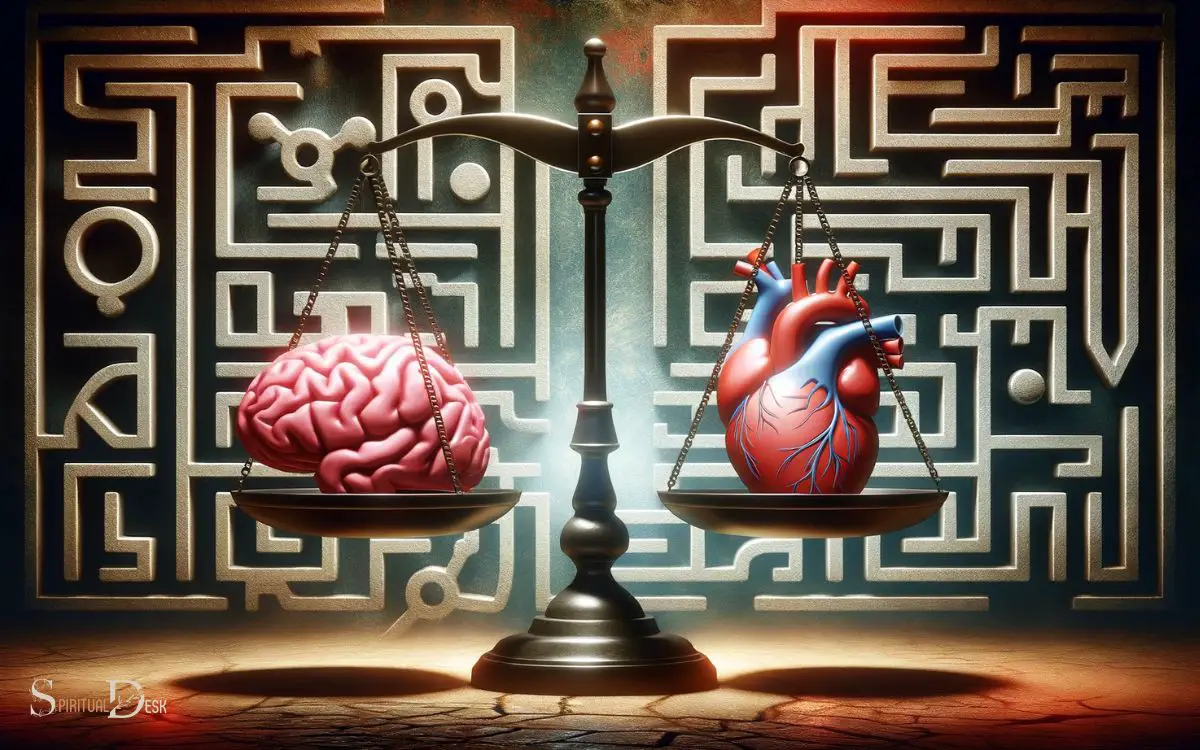
As moral and ethical dilemmas intersect with the dynamics of temporal and spiritual power, the complexities of global conflicts are further compounded.
In exploring this intersection, it becomes evident that:
- Value Conflicts: Moral and ethical dilemmas often arise from clashes in values, such as individual rights versus collective well-being, leading to tensions within and between societies.
- Decision-Making Challenges: Leaders wielding temporal or spiritual power confront tough choices that necessitate balancing the greater good against individual freedoms, testing their moral compass.
- Repercussions on Peace Efforts: Ethical dilemmas can impede conflict resolution efforts, as competing moral frameworks may hinder the reconciliation and understanding needed for sustainable peace.
Navigating these dilemmas requires a nuanced understanding of ethical principles and a commitment to finding common ground amidst divergent perspectives.
Modern-Day Relevance
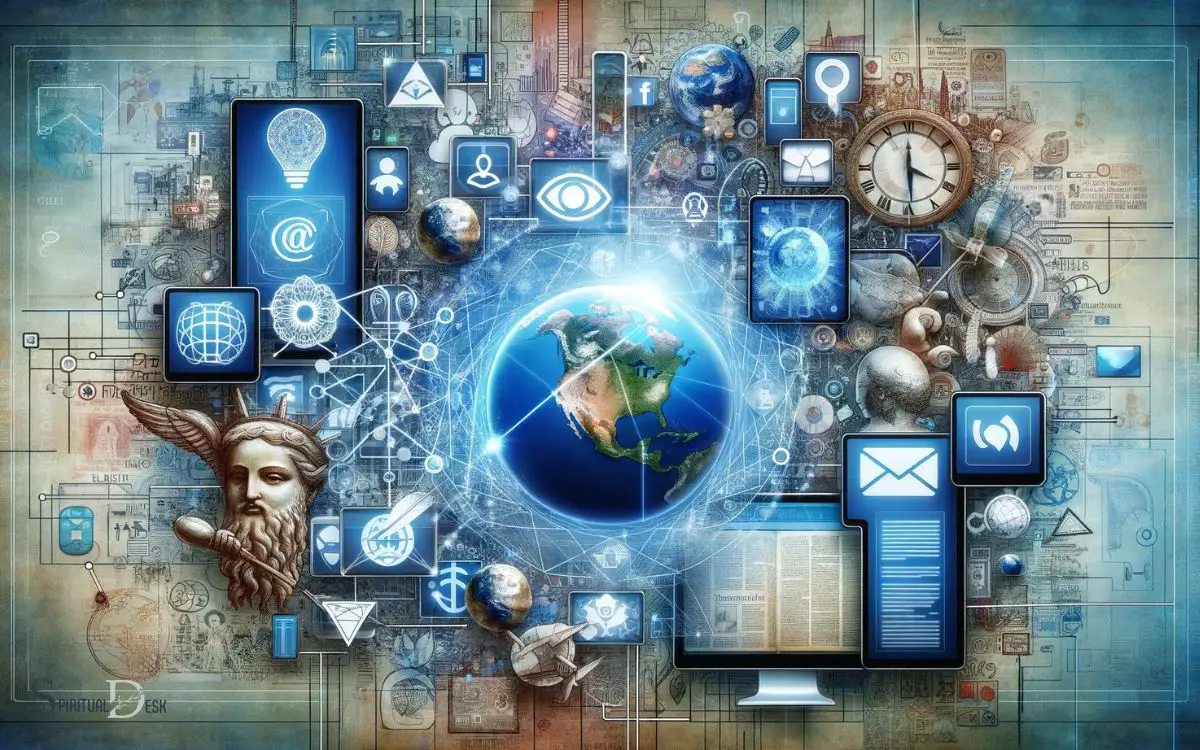
In contemporary society, one must acknowledge the ongoing influence of both temporal and spiritual power on global affairs.
The modern-day relevance of temporal power is evident in the political, economic, and social structures that govern our world. Nation-states, international organizations, and economic institutions wield significant temporal power, shaping policies and influencing global events.
On the other hand, spiritual power continues to play a vital role in shaping individuals’ beliefs, values, and ethical frameworks.
In a rapidly changing and interconnected world, the interplay between temporal and spiritual power remains a complex and dynamic force.
Understanding the modern-day relevance of these powers is crucial for comprehending the underlying dynamics that drive global affairs and societal developments.
As such, the ongoing influence of temporal and spiritual power demands thoughtful consideration in contemporary discourse and decision-making processes.
FAQ About Temporal Power Vs Spiritual Power
How Do Religious Institutions View the Balance Between Temporal Power and Spiritual Power?
Religious institutions navigate the balance between temporal and spiritual power with careful consideration, aiming to uphold both their moral authority and their influence in societal affairs.
This delicate equilibrium underpins their approach to governance and social engagement.
What Are Some Examples of Historical Figures Who Successfully Wielded Both Temporal and Spiritual Power?
Historical figures who successfully wielded both temporal and spiritual power include Charlemagne.
Who was crowned Holy Roman Emperor by the Pope, and Queen Elizabeth I, who established the Church of England while reigning as monarch.
How Does the Concept of Temporal Power Vs Spiritual Power Differ Across Different Religious Traditions?
The concept of temporal power vs spiritual power varies across religious traditions, with differences in the roles and authority of secular and religious leaders.
Understanding these distinctions provides insight into the governance and influence within diverse faith communities.
Are There Any Modern-Day Examples of Leaders Who Have Effectively Balanced Temporal and Spiritual Power?
In modern times, leaders who effectively balance temporal and spiritual power demonstrate a keen understanding of governance and religious principles.
Their ability to navigate complex societal challenges while upholding moral and ethical values serves as a testament to their leadership.
How Does the Influence of Temporal Power Vs Spiritual Power Impact International Diplomacy and Relations Between Countries?
The influence of temporal power vs spiritual power significantly impacts international diplomacy and relations between countries, shaping alliances, negotiations, and conflicts.
This dynamic interplay can shape the geopolitical landscape, impacting global stability and cooperation.
Conclusion
The comparison between temporal power and spiritual power reveals the complex interplay between leadership, societal norms, global conflict, and moral dilemmas throughout history.
The investigation into this theory sheds light on the dynamic relationship between these two forms of power and their modern-day relevance.
By examining the historical perspectives and their influence on ethical and moral decisions, a deeper understanding of the impact of temporal and spiritual power on society can be gained.



